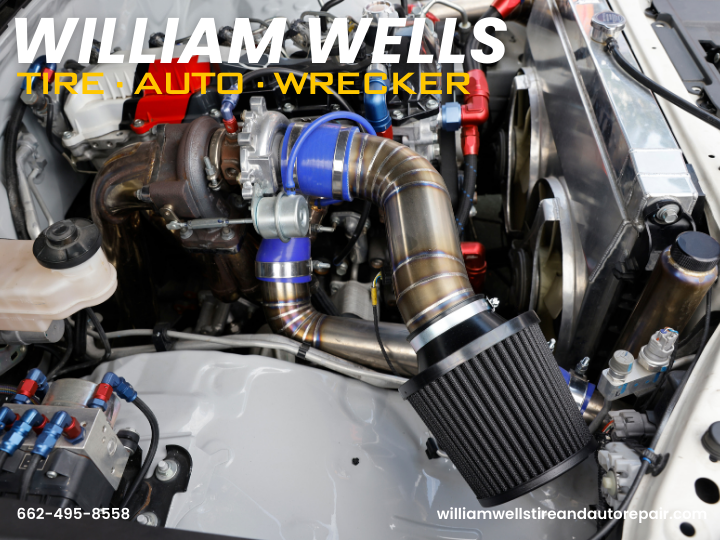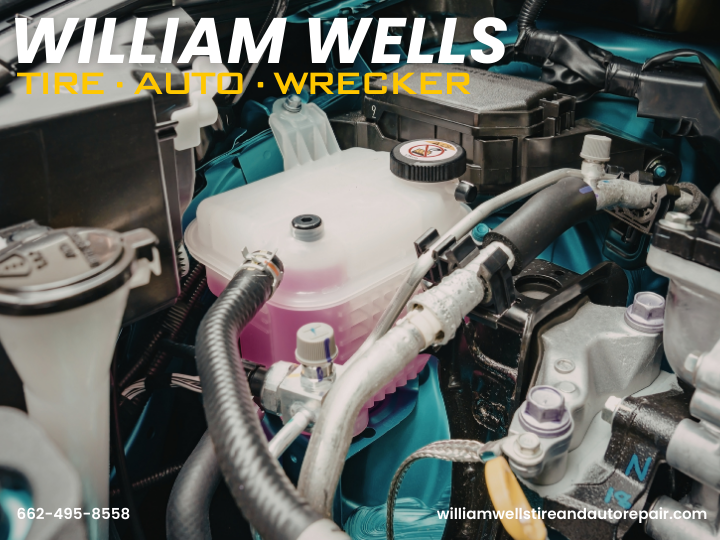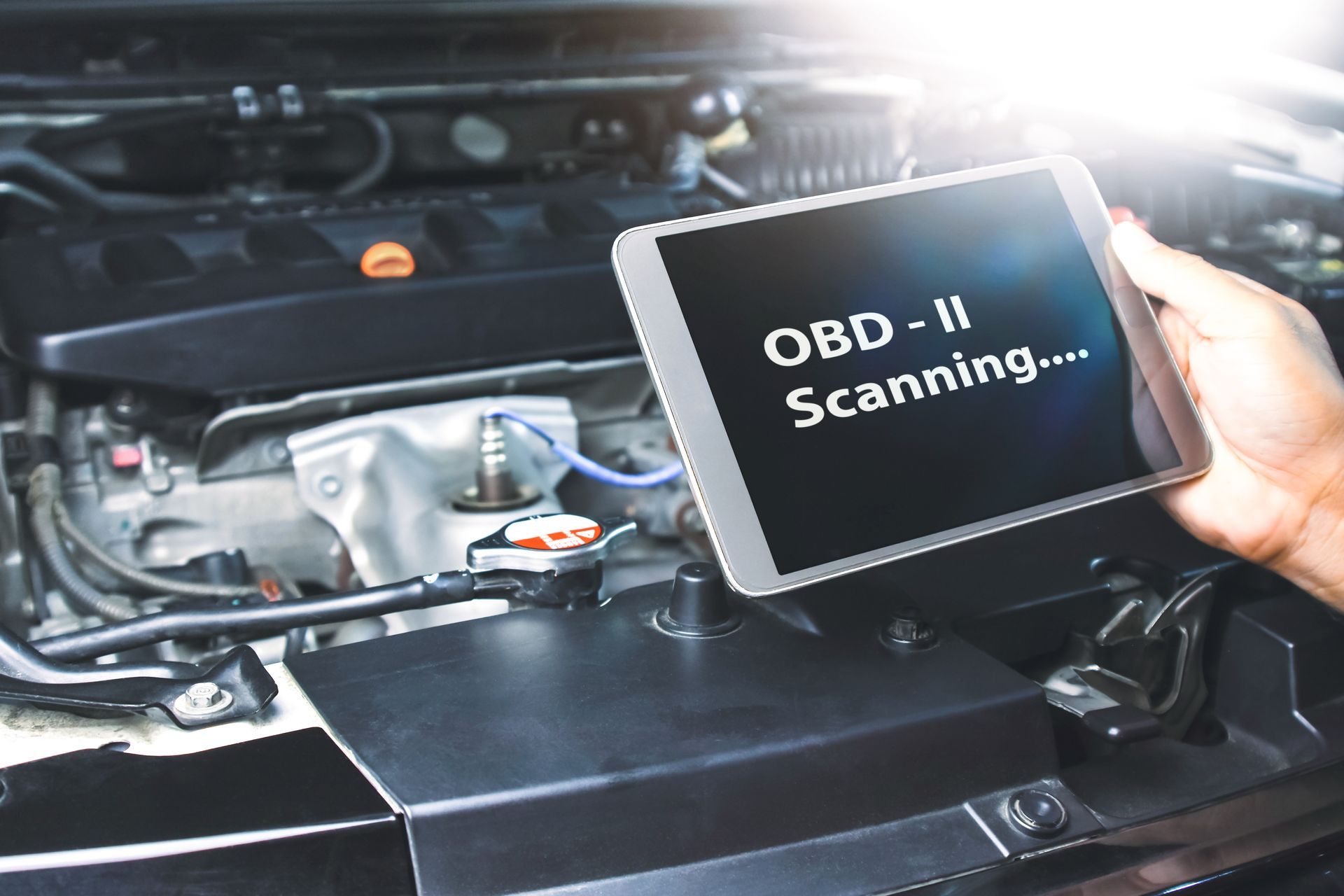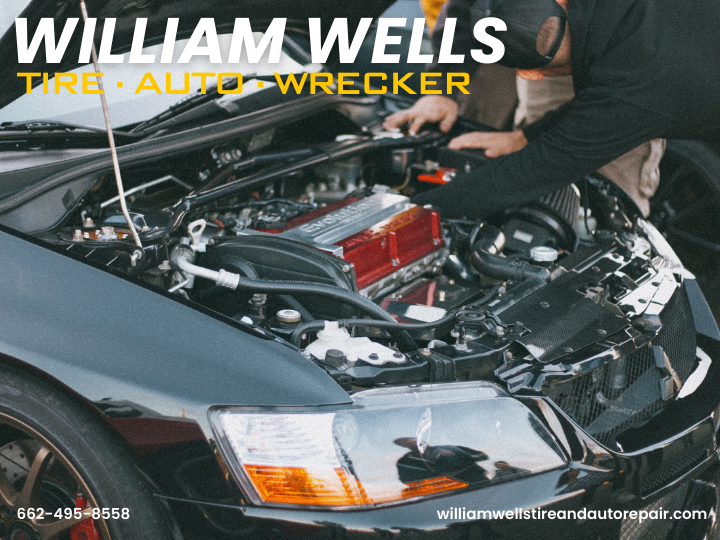Why does my truck smell like rotten eggs?
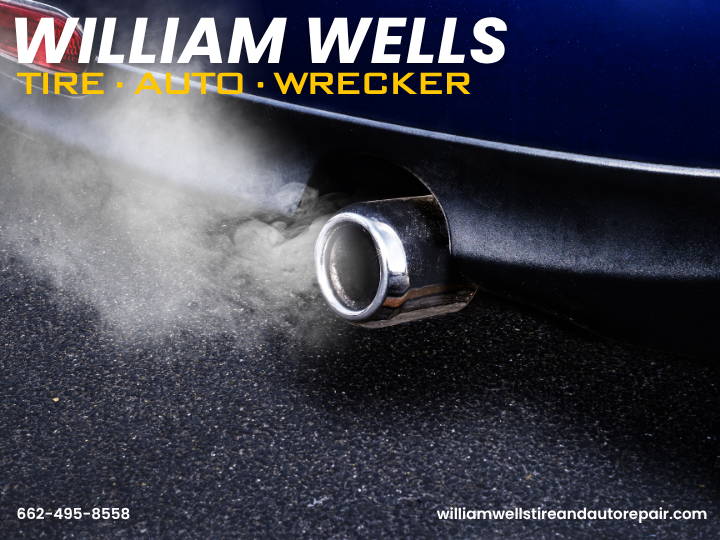
Why Does My Truck Smell Like Rotten Eggs? Understanding the Sulfur Odor and How to Fix It
If your truck smells like rotten eggs, it’s not your imagination—and it’s not normal. That distinct sulfur smell usually means that something isn’t working correctly in your exhaust, fuel, or charging system. What you’re actually smelling is hydrogen sulfide (H₂S)—a gas produced when your engine burns fuel that contains sulfur. Under normal conditions, your catalytic converter converts this gas into odorless sulfur dioxide (SO₂) before it exits through the exhaust.
When one of your truck’s systems starts malfunctioning, hydrogen sulfide can escape unprocessed, producing that unpleasant “rotten egg” odor. Whether you’re driving through Starkville, Columbus, or West Point, MS, the smell indicates that it’s time to have your truck inspected before it leads to bigger problems.
1. The Rotten Egg Smell: What It Really Means
Hydrogen sulfide is created during combustion, but your exhaust system is designed to eliminate it. When that system stops functioning as intended, the gas escapes and you smell it around the tailpipe—or sometimes even under the hood.
The most common causes are:
- A
failing catalytic converter
- A
rich fuel mixture (too much fuel, not enough air)
- An
overcharged or leaking battery
Each of these problems has different symptoms, but they all lead to one thing—the chemical imbalance that produces that sulfur smell.
2. The Catalytic Converter: The Most Common Culprit
Your catalytic converter is responsible for converting harmful gases from the engine into less harmful emissions. Inside the converter, precious metals like platinum and palladium act as catalysts for chemical reactions that neutralize toxins.
When the converter is damaged or overwhelmed, it can’t process hydrogen sulfide efficiently—allowing it to pass through the exhaust unchanged.
Causes of Converter Failure
- Unburned fuel from a misfiring engine
- Rich fuel mixture overwhelming the catalyst
- Contamination from coolant or oil leaks
- Physical clogging or heat damage from prolonged stress
Signs of a Failing Catalytic Converter
- Rotten egg or sulfur smell near the exhaust
- Sluggish acceleration or reduced power
- Poor fuel economy
- Rattling noise under the truck
- Check engine light with code P0420 or similar
If your converter is beginning to fail, you’ll likely notice the smell intensify after driving or idling for a while.
3. Fuel System Imbalances: When Your Engine Runs Too Rich
A “rich” fuel condition happens when there’s too much fuel and not enough air entering the engine. This imbalance leads to incomplete combustion—leaving unburned hydrocarbons and sulfur compounds that overwhelm the catalytic converter.
Common Causes
- Faulty oxygen sensors sending inaccurate air-fuel readings
- Bad fuel pressure regulator delivering too much fuel
- Dirty or leaking fuel injectors
- Clogged air filter restricting airflow
Additional Symptoms
- Rough idle or uneven performance
- Check engine light
- Black smoke from the exhaust
- Reduced fuel economy
Drivers in Mississippi often encounter this issue during short trips or heavy idling—conditions that prevent the converter from fully heating up and processing fuel efficiently.
4. The Battery: A Less Common but Serious Source
Sometimes, the smell isn’t coming from your exhaust at all—it’s coming from under the hood. When a lead-acid battery is overcharged, it can release hydrogen sulfide gas, which smells exactly like rotten eggs.
Warning Signs of a Battery Issue
- The odor is strongest near the engine bay
- The battery feels hot or swollen
- Corrosion or moisture around the terminals
- Dimming lights or flickering electronics
- Faulty alternator or voltage regulator
This issue is more than just unpleasant—it’s dangerous. Overcharging can cause leaks, corrosion, and in extreme cases, battery explosion. If you suspect your battery is the cause, stop driving and have it inspected immediately.
5. Why Ignoring the Smell Can Be Costly
That sulfur smell is a red flag for deeper mechanical issues that can escalate quickly if ignored.
The Risks of Waiting Too Long
- Clogged converter – Overheats and restricts exhaust flow.
- Engine performance loss – Misfires or fuel system imbalances reduce power and efficiency.
- Battery corrosion or failure – Overcharging shortens battery life and damages electrical components.
Addressing the issue early not only saves time and money—it protects your truck’s performance and safety.
6. Professional Diagnostics: How Technicians Find the Source
When you bring your truck to a certified shop, technicians follow a detailed diagnostic process to determine the cause of the sulfur odor.
Step 1: Locate the Smell
They determine whether the odor originates from the tailpipe or under the hood.
Step 2: Scan for Diagnostic Codes
A full system scan identifies problems with oxygen sensors, the catalytic converter, or air-fuel ratio.
Step 3: Analyze Fuel Trim Data
Readings from the fuel system reveal whether the engine is running rich or lean.
Step 4: Inspect the Catalytic Converter
Technicians check for clogging, overheating, or rattling within the converter.
Step 5: Test the Battery and Charging System
Voltage and charging output are checked to rule out overcharging.
This structured process ensures the problem is corrected at its root—not just temporarily masked.
7. How to Prevent the Sulfur Smell from Returning
Once the issue is fixed, prevention comes down to proper maintenance and fuel quality.
Preventive Tips
- Use high-quality fuel – Choose reputable stations around Starkville, Columbus, and West Point.
- Replace air and fuel filters regularly – Keeps combustion clean and balanced.
- Inspect spark plugs and ignition components – Prevents misfires that overload the converter.
- Monitor your battery – Have the charging system tested periodically.
- Avoid short trips – Take longer drives occasionally to keep the converter at operating temperature.
These habits help your truck run more efficiently and reduce the risk of future odor issues.
8. Why It’s Common in Mississippi
Drivers in Mississippi often face conditions that make this problem more likely. Short city commutes in Starkville, combined with high humidity and temperature swings, can create incomplete combustion conditions. Meanwhile, trucks used for towing or hauling in Columbus or West Point put more strain on catalytic converters and sensors.
By staying proactive with inspections and maintenance, you can prevent the sulfur smell and keep your truck running clean and strong.
9. When to Schedule a Professional Inspection
It’s time for an inspection if you notice:
- The rotten egg smell lasting more than a few minutes
- The smell intensifying after warming up or idling
- Reduced engine performance
- Rattling or overheating sounds under the truck
- Odor coming from the engine bay (battery issue)
Professional diagnostics ensure that you fix the issue early and avoid long-term component damage.
10. What Happens During Service
When you bring your truck in, expect a thorough, professional process that includes:
- Full computer diagnostics to scan for sensor or fuel trim issues
- Catalytic converter and exhaust system inspection
- Air-fuel mixture and injector testing
- Battery and charging system evaluation
- Transparent repair recommendations tailored to your vehicle’s needs
The goal is simple: eliminate the smell and restore your truck’s power, efficiency, and reliability.
11. The Benefits of Fixing the Rotten Egg Smell
Once repaired, you’ll notice immediate and lasting improvements:
- Cleaner exhaust and no lingering odors
- Improved fuel efficiency
- Better engine response and acceleration
- Longer converter and battery lifespan
- Peace of mind knowing your vehicle is running properly
12. Don’t Ignore the Warning Sign
The rotten egg smell is your truck’s early alert system. Whether it’s a failing catalytic converter, a rich-running engine, or an overcharged battery, addressing it now prevents major repairs later.
If your truck smells like sulfur or rotten eggs, have it inspected by trusted professionals who can accurately identify and fix the problem.
William Wells Tire & Auto
- 12919 MS-182, Starkville, MS 39759 — (662) 268-4081
- 1625 Gardner Blvd, Columbus, MS 39702 — (662) 240-2414
- 93 W Broad St, West Point, MS 39773 — (662) 495-8558
https://www.williamwellstireandautorepair.com/
Proudly serving drivers in Starkville, Columbus, West Point, and surrounding Mississippi communities with honest, expert auto repair and diagnostics.
You can watch the video


